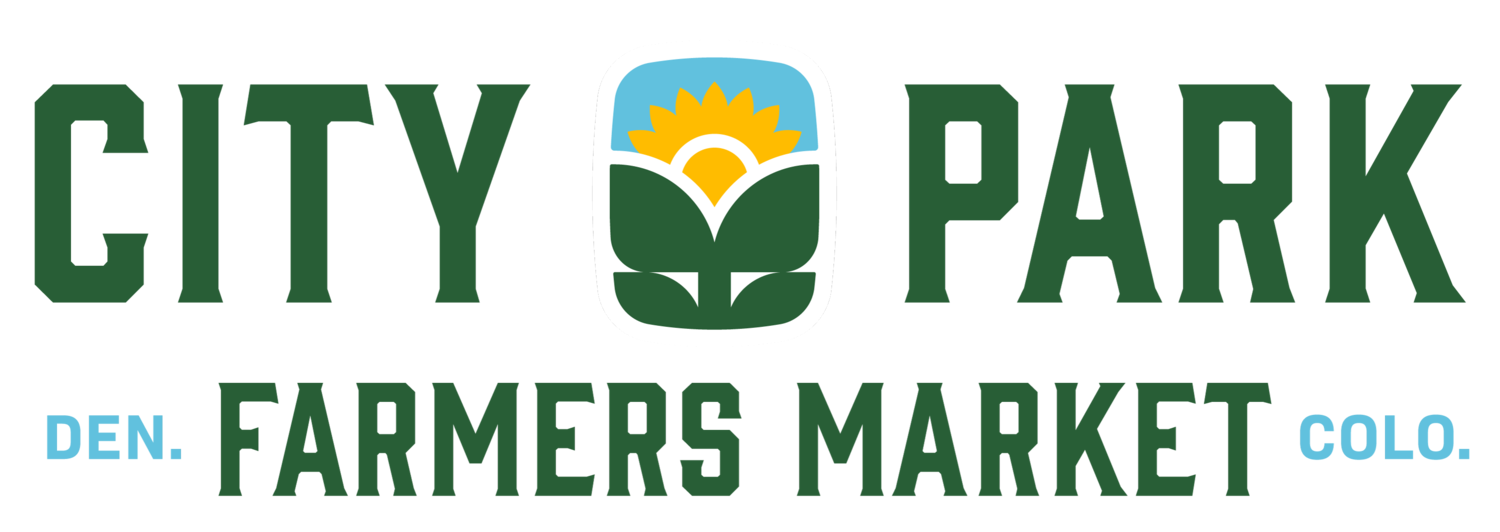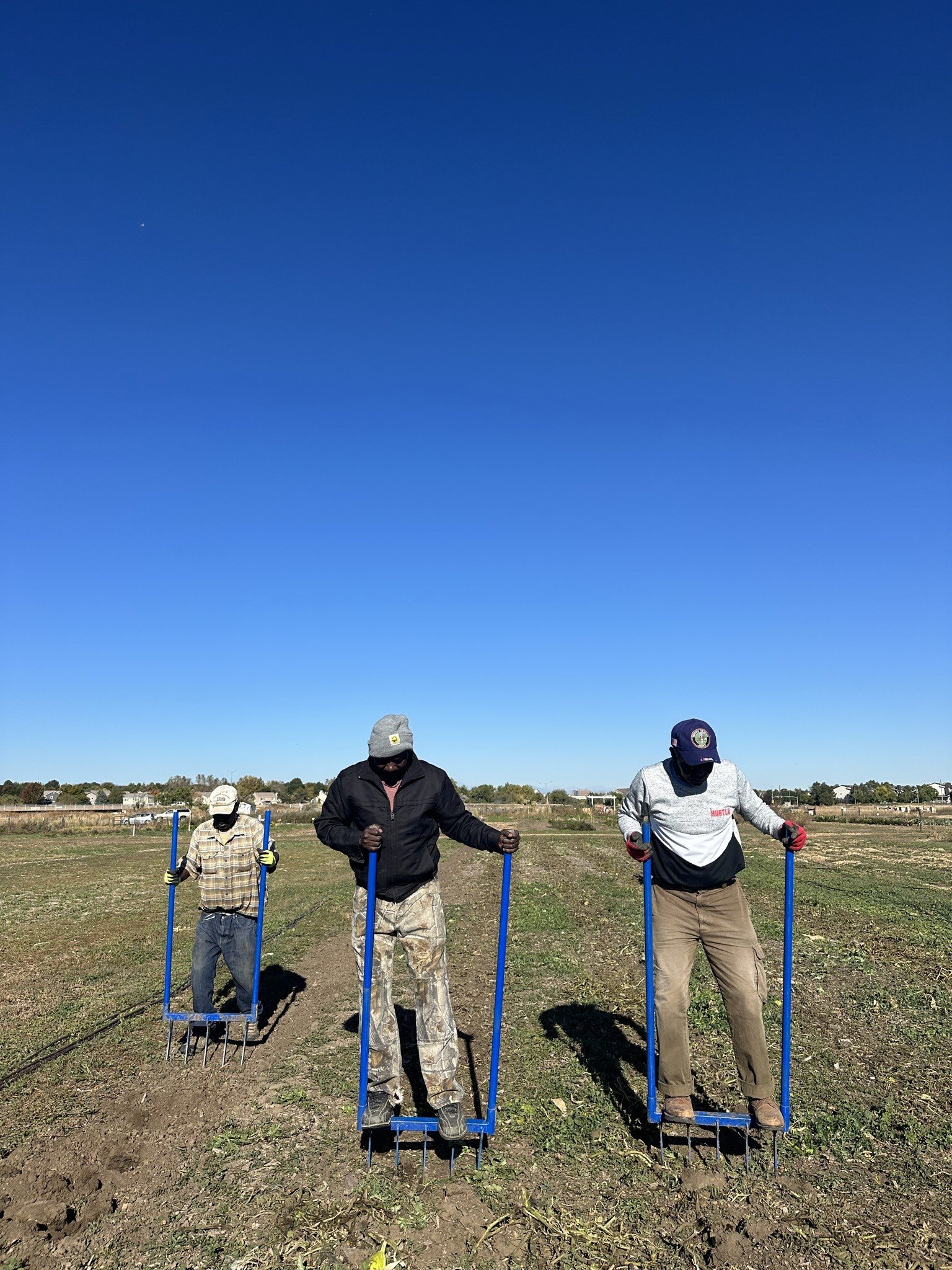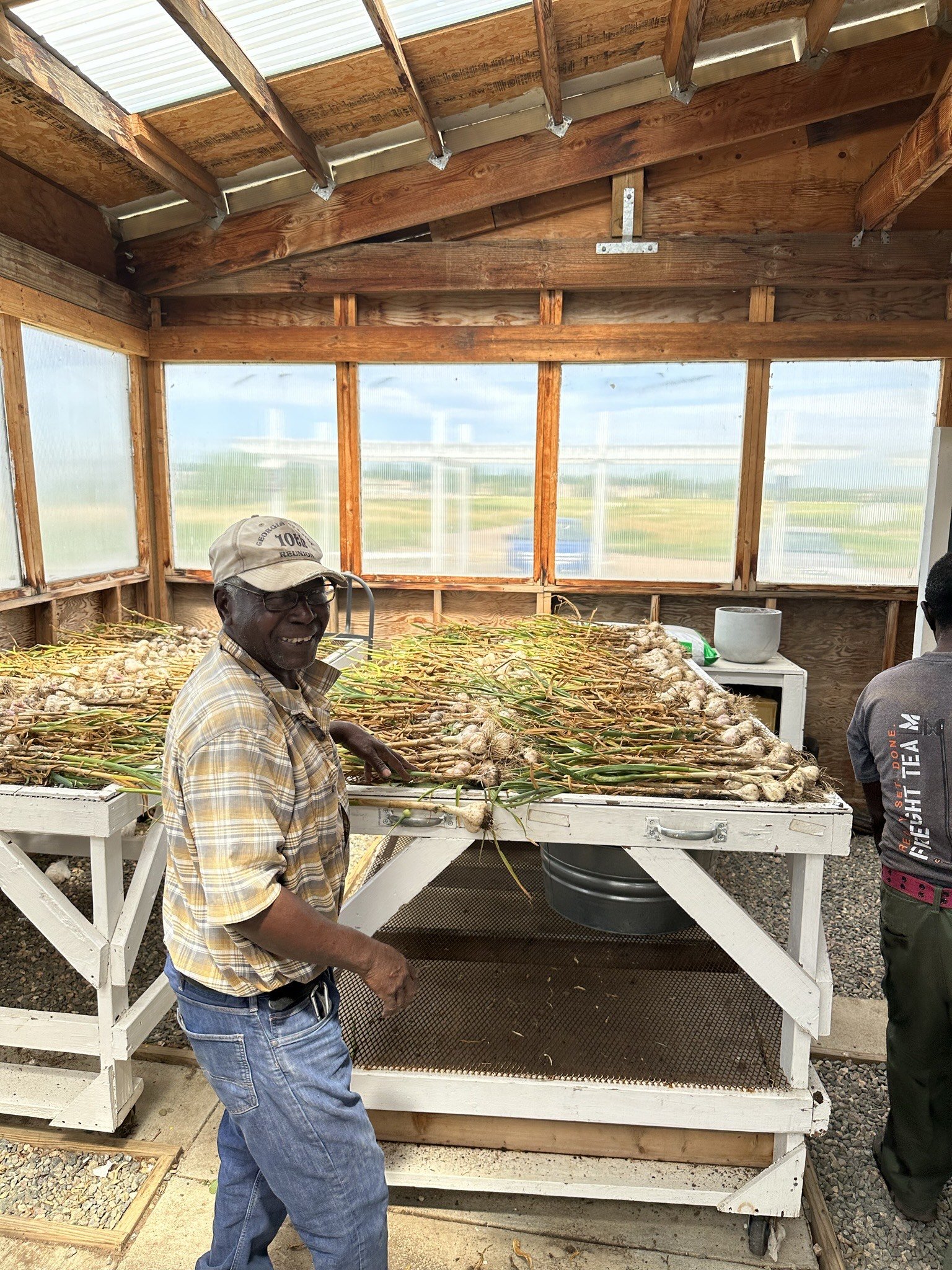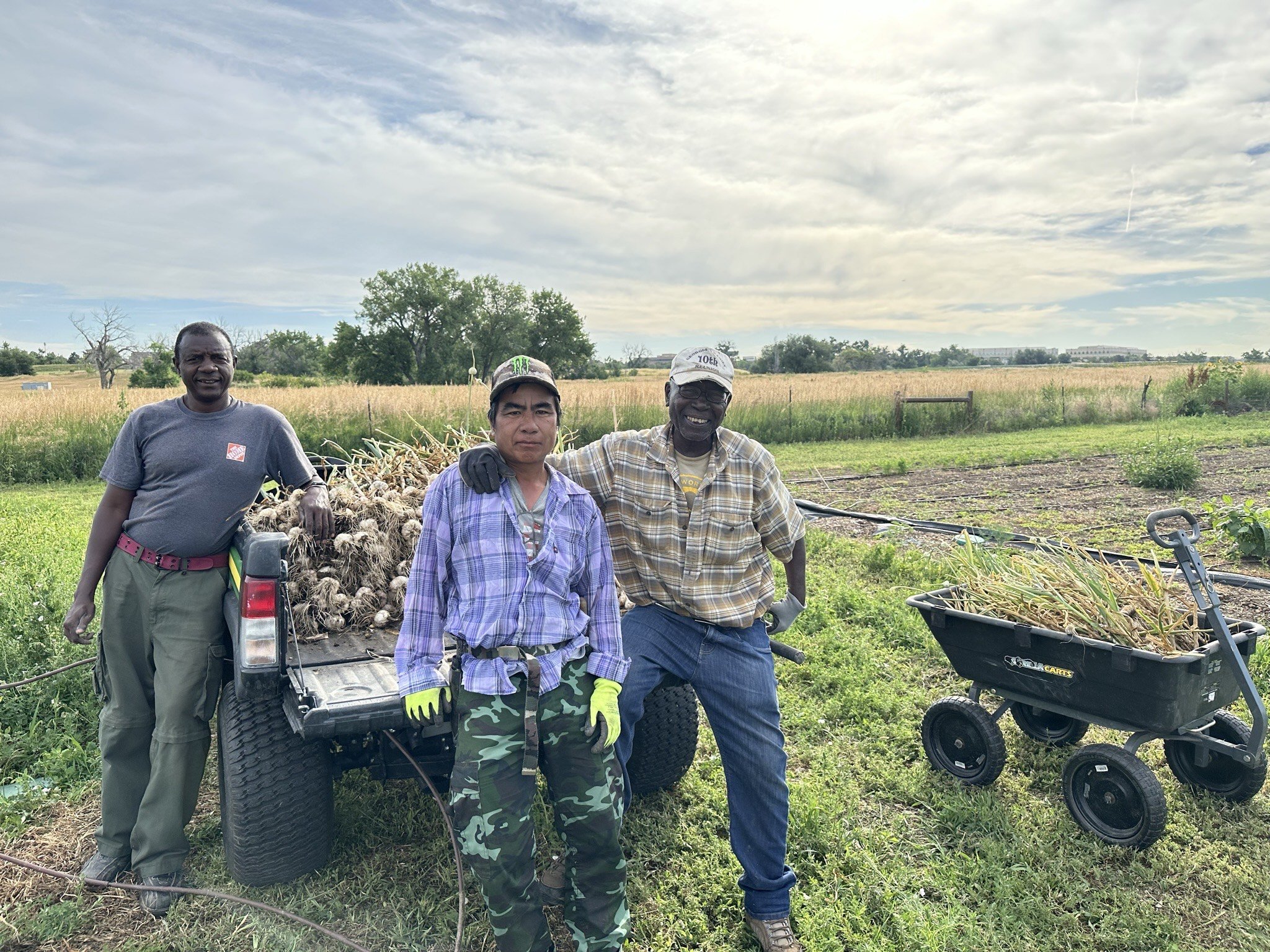Identifying food by the people who grow it
an interview with delaney community farm
DeLaney Community Farm is not like many other farms that we know or have even heard of. Not because of the produce that they grow or the way they grow it - though that too can have a unique twist to it. But because of the farmers that grow and harvest the produce, the background of the hands that are watering and picking, and the unique model of sustaining families through produce shares and job creation. DeLaney is a refugee-run farm organized by Project Worthmore, partnered with Denver Urban Gardens, and farming on land owned by the City of Aurora. It’s run each day by five refugees and one American farmer. Think that sounds pretty cool? It’s life changing.
Farmers working at DeLaney. Photo courtesy of Dayna Kozlowski
Farmers working at DeLaney. Photo courtesy of Dayna Kozlowski
I got the opportunity to sit down with head farmer, Dayna, who gave us a more recent insight into DeLaney Community Farm, its farmers, and why they decided to become market farmers. But first I’d like to take a minute to remind ourselves that a refugee is a person who has been forced to leave their country in order to escape war, persecution, or violence. The farmers at DeLaney are in the US because they had to flee for their lives, away from their jobs, their farms, and their communities due to war or persecution. Colorado is home to an estimated 60,000 refugees, who arrive in the US needing to pay rent, learn English, and adapt to a new cultural norm, not to mention pay back the cost of the plane ticket that got them here.
Project Worthmore, the non profit organization that started and runs Delaney, aims “to provide programs that foster community, self-sufficiency and increase quality of life among refugees and immigrants.” And DeLaney Community Farm is one of six programs that they have started that points toward that mission. It’s a worthy endeavor, and we are lucky to have them at our market.
Ok, back to the interview…
Dayna, a former Peace Corp member with a background in farming, relocated from West Africa to Denver to work for DeLaney Community Farm which she takes great delight in. A typical day there starts like many jobs - there is a morning meeting to discuss the day's agenda, but at this farm translation in numerous languages must first take place. Instead of a divide and conquer method, all the farmers work with a united front - attacking the field all together. Since there is no common language amongst them, the team must do a lot of charading throughout the day to communicate.
Farmers working at DeLaney. Photo courtesy of Dayna Kozlowski
Dayna shared that one of the things she first noticed was how the cultural differences show up on the field. The farm team currently consists of Burmese and Somali farmers. The individuals who work the farm are quite literally from opposite ends of the world with very distinct cultural differences. While one culture may be more loud and booming with communication, another culture displays more timid and meekness in sharing out. Dayna shared that her Burmese coworkers display incredible talents in hunting, foraging, and cooking. It’s become common practice that these Burmese farmers will come to work, forage on the farm, and make a fresh meal to eat for lunch. The Somalian farmers are more used to wives cooking the majority of the meals in the home and come with packed and rather simple meals to eat during the work day. Dayna believes that one reason DeLaney is continuing to flourish is because of the unique benefits of learning and exploring the differences in each other's cultures. Although from the outside world, these cultural differences may seem like hurdles to overcome, the farm team at DeLaney has used these barriers to benefit the farm through exploration of different methods of farming and work.
When I asked Dayna why DeLaney Community Farm decided to become market farmers even with their full plate for CSA and supplying local restaurants, her answer surprised me. DeLaney feels that City Park is a welcoming incubator for recipes and cultures. And then she said something that really struck me: the community here identifies food with the people behind it. They are intimately and forever tied together.
In most western cultures, it is common practice to go to the store or a restaurant and purchase food without considering the hands that grew or prepared the food. We are, by and large, removed from the difficult and often messy process. But when we slow down, learn about the people that have grown, harvested, processed, or prepared our food, we become a part of a larger story. We grow empathy, understanding, and appreciation for what’s in front of us. The farmers market allows us this remarkable privilege - when you purchase produce from DeLaney, you are becoming a part of these farmers' life journey. The story of a refugee, someone forced to leave the only home they knew, trying to make a life for their families in a foreign country. We all are becoming part of their story of self sufficiency and worth, while showing hospitality in a new country. Not sure how to best support refugees in our community? One simple way is to show up at the market and buy fresh, local vegetables from DeLaney Community Farm.







